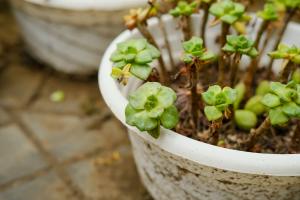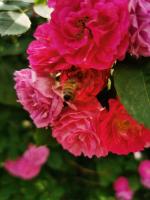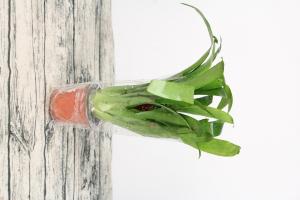Are Venus Fly Traps Good Indoor Plants?
Many people are drawn to Venus Fly Traps, also known as Dionaea muscipula, for their unique carnivorous abilities. But are they suitable to be kept as indoor plants? Let's explore the benefits and drawbacks of having Venus Fly Traps indoors.
Benefits
One of the benefits of having a Venus Fly Trap indoors is that they are relatively low maintenance. They do not need much watering, as they get most of their nutrients from insects they capture. They also do not require much fertilization or pruning, making them a great choice for those who don't have a lot of time to devote to caring for plants.
Venus Fly Traps are also unique and interesting plants to have in your home. Their traps, which look like mouths with teeth, are fascinating to watch in action as they close on their prey. They also add a touch of exoticism to any room.
Drawbacks
One of the main drawbacks of having Venus Fly Traps indoors is that they require a lot of light. While they can handle some shade, they need a good amount of direct sunlight to thrive. If your home does not have many windows or doesn't get a lot of sunlight, a Venus Fly Trap might not be the best choice for you.
Another drawback of having Venus Fly Traps indoors is that they are sensitive to changes in their environment. They need a specific type of soil and can be picky about water quality. They also require a certain level of humidity, which can be difficult to maintain indoors.
Caring for Venus Fly Traps Indoors
If you decide to keep a Venus Fly Trap as an indoor plant, there are a few things you should keep in mind. First, make sure to use a well-draining soil that is primarily peat moss. You should also only water with distilled or rainwater, as tap water can contain minerals that are harmful to the plant. Finally, try to keep the humidity level around the plant between 50% to 70% by using a humidifier or placing a tray of water near the plant.
In terms of feeding your Venus Fly Trap, it is not necessary to feed it insects. However, you can choose to feed it insects occasionally to help it grow faster. Make sure to only feed it small insects like fruit flies, and never give it insects that have been caught with insecticides.
Conclusion
Overall, Venus Fly Traps can be great indoor plants as long as you are able to provide them with the right environment. They are fascinating to watch and require relatively little maintenance compared to other houseplants. However, they do require a lot of direct sunlight and can be picky about their soil and water quality. As with any plant, make sure to do your research and provide the best care possible for your Venus Fly Trap.

 how many times do yo...
how many times do yo... how many planted tre...
how many planted tre... how many pine trees ...
how many pine trees ... how many pecan trees...
how many pecan trees... how many plants comp...
how many plants comp... how many plants can ...
how many plants can ... how many plants and ...
how many plants and ... how many pepper plan...
how many pepper plan...






























